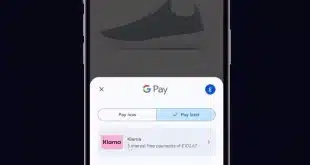One of the most unusual auctions ever is scheduled for Friday, but the event is largely shrouded in mystery. Beginning at 6:00 a.m. Eastern and continuing for 12 hours, the U.S. Marshals Service will take sealed online bids for 29,657 Bitcoins that the FBI seized in its bust last October of Silk Road, a bustling Internet black market that accepted only Bitcoin for payment.
The Marshals Service, a unit of the U.S. Department of Justice, frequently sells property subject to forfeiture in criminal investigations, but this is the first time it’s sold virtual currency. It’s unclear when any other law-enforcement agencies also have done so.
Bidders had until noon Eastern today to register for the auction. Registration began a week ago and required a participant to submit a $200,000 deposit by wire transfer from a U.S. bank. A Marshals Service spokesperson would not say how many bidders have registered.
The Bitcoins to be auctioned are worth $17.4 million based on today’s price of $585.46 per Bitcoin as quoted by CoinDesk.com’s Bitcoin Price Index, which tracks prices from various exchanges. The units represent 17% of the nearly 174,000 Bitcoins that the government seized in connection with its closure of Silk Road and the arrest of its operator, Ross W. Ulbricht, according to the U.S. Attorney’s Office in Manhattan.
The Bitcoins will be sold in 10 blocks: nine Series A blocks of 3,000 Bitcoins apiece, and one Series B block of 2,656.5 Bitcoins. Registrants can bid on more than one block.
According to the Marshals Service, the bidder submitting the highest price will win. If there are multiple bids at the highest price, the first bid at that price will win.
The Marshals Service will inform winning bidders of the results next Monday and require payment by wire by 5:00 p.m. Eastern July 1. Deposits from winners will be applied to the amount owed while those from losers will be returned.
The service said it does not plan to name the winners publicly, but it’s possible their identities eventually will become known. “I think people will put in FOIAs [Freedom of Information Act requests] and we’ll see what happens,” says the spokesperson.
One company that registered was Bitcoin Shop Inc., an Arlington, Va.-based e-commerce marketplace. “We believe in the future of virtual currencies and have made a strategic decision to participate in this unprecedented opportunity by wiring the deposit and submitting a registration application to the USMS,” chief executive Charles Allen said in a statement.
Apart from its sheer novelty, consultant and new-payments technology researcher George Peabody of Menlo Park, Calif.-based Glenbrook Partners does not see the auction as a milestone in the short history of Bitcoin, the leading virtual currency and the subject of intense entrepreneurial effort by startup tech firms and payment processors.
“Law-enforcement agencies sell confiscated property all the time,” Peabody says by email. “That’s what’s going on here. It’s significant only in that it’s a new form of confiscated property. I guess they decided it was time to sell.” He notes that the value of the seized currency fell by more than half at one point but has since partially recovered.
An independent payments researcher, Beth Robertson in suburban Baltimore, says by email that the auction could attract bidders from the ranks of “currency exchanges, gateways, retailers, online-gaming organizations, alternative payments providers,” and others.
“While the nature of Bitcoin has always been that it is decentralized, there are various organizations that could be interested in controlling more of the currency for a variety of reasons, which could include to facilitate acceptance, to control price fluctuation, to establish or enhance a market, etc.,” says Robertson.
The volatile nature of Bitcoin’s price and the lack of a statement by the Marshals Service about what it sees as the value of its Bitcoin holdings means that the agency could get bids “that are all over the map,” she adds.
The Marshals Service said it will not accept bids from anyone associated with Silk Road or Ulbricht, who was charged with conspiracies related to computer hacking, narcotics, and money laundering. It also won’t take bids from people on the list of “specially designated nationals” produced by the U.S. Treasury Department’s Office of Foreign Assets Control (OFAC). Names on that list are of people or entities from countries subject to U.S. economic sanctions, in addition to known terrorists and money launderers.
The FBI reportedly is holding the remaining Silk Road Bitcoins, which presumably will be sold later, according to news reports.





